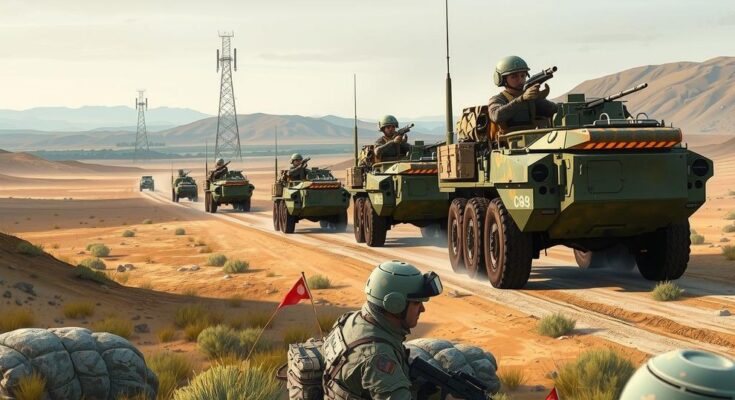The NRM Parliamentary Caucus in Uganda has approved the deployment of the UPDF to South Sudan in response to President Kiir’s appeal for assistance amid a deteriorating security situation. This move aims to enforce peace and prevent further conflict escalation, following violent incidents in the region. Uganda’s military involvement marks a significant escalation in the crisis, reinforcing Kiir’s government against opposition forces.
On March 14, 2025, Uganda’s ruling National Resistance Movement (NRM) Parliamentary Caucus approved the deployment of the Uganda People’s Defence Forces (UPDF) to South Sudan. This decision aligns with President Museveni’s response to a request for military assistance from South Sudan’s President Salva Kiir amid fears of a potential return to war. The deployment is articulated as a necessary measure under both Uganda’s Constitution and the UPDF Act, aimed at ensuring stability in the region.
The NRM Caucus recognized Uganda’s historical commitment to regional stability, referencing past military interventions throughout Africa. The Caucus deemed the UPDF deployment in South Sudan as essential for enforcing peace, safeguarding lives, and preventing further conflict escalation. In the resolution, they also supported seeking “Parliamentary approval” consistent with constitutional mandates, a move signed by Government Chief Whip and NRM Caucus Chairperson, Obua Denis Hamson (MP).
Gen. Muhoozi Kainerugaba, Uganda’s army chief, confirmed there are already Ugandan Special Forces stationed in Juba. He reaffirmed loyalty to President Kiir, stating, “We the UPDF, only recognize ONE President of South Sudan, H.E. Salva Kiir. He is our ‘Afande’ even in UPDF… Any move against him is a declaration of war against Uganda!” The endorsement of military deployment follows violent events, such as the deadly attack on a UN helicopter in Nasir that exacerbated concerns regarding South Sudan’s security.
The NRM’s endorsement of military intervention signifies an important commitment by Uganda to support President Kiir’s government amid escalating violence in South Sudan. While this move is intended to stabilize the region, it also raises the potential for increased tensions among neighboring countries. The forthcoming parliamentary approval will formalize Uganda’s military presence, highlighting the complexities of the ongoing conflict in South Sudan.
Original Source: chimpreports.com




